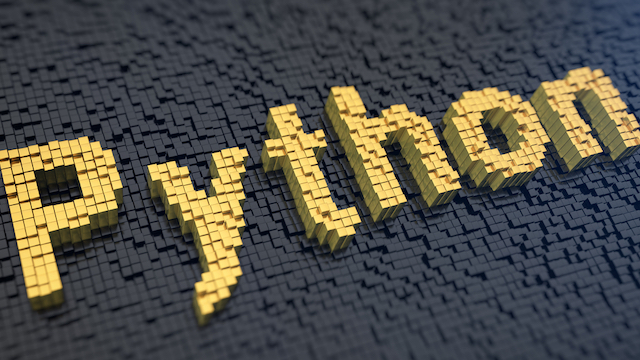During the last project I worked on, I run into the fun issue of converting Python Lists to String. The following post presents what I have learned and displays the most efficient methods to do so.
Python provides a magical join() method that takes a sequence and converts it to a string. The list can contain any of the following object types: Strings, Characters, Numbers.
While programming, you may face many scenarios where list to string conversion is required. Let’s now see how we can use the join() method in such different cases.
How to Convert Python List to String
As we’ve told above that Python Join() function can easily convert a list to string, so let’s first check out its syntax.
Python Join() Syntax
The syntax of join() is as follows:
string_token.join( iterable )
Parameters:
iterable => It could be a list of strings, characters, and numbers
string_token => It is also a string such as space'' or comma "," etcetera
The above method joins all the elements present in the iterable separated by the string_token. Next, we explore examples using the join() function to convert the list to a string.
Convert Python List of Strings to a string using join()
Let’s say we have a list of month names.
# List of month names
listOfmonths = ["Jan" , "Feb", "Mar", "April", "May", "Jun", "Jul"]
Now, we’ll join all the strings in the above list, considering space as a separator.
"""
Desc:
Function to convert List of strings to a string with a separator
"""
def converttostr(input_seq, seperator):
# Join all the strings in list
final_str = seperator.join(input_seq)
return final_str
# List of month names
listOfmonths = ["Jan" , "Feb", "Mar", "April", "May", "Jun", "Jul"]
# List of month names separated with a space
seperator = ' '
print("Scenario#1: ", converttostr(listOfmonths, seperator))
# List of month names separated with a comma
seperator = ', '
print("Scenario#2: ", converttostr(listOfmonths, seperator))
The output is as follows:
Scenario#1: Jan Feb Mar April May Jun Jul
Scenario#2: Jan, Feb, Mar, April, May, Jun, Jul
Convert a list of chars into a string
With the help of join() method, we can also convert a list of characters to a string. See the example given below:
charList = ['p','y','t','h','o','n',' ',
'p','r','o','g','r','a','m','m','i','n','g']
# Let's convert charList to a string.
finalString = ''.join(charList)
print(charList)
print(finalString)
The output is as follows:
['p', 'y', 't', 'h', 'o', 'n', ' ',
'p', 'r', 'o', 'g', 'r', 'a', 'm', 'm', 'i', 'n', 'g']
python programming
Conversion of a mixed list to a string using join()
Let’s assume that we have got a list of some numbers and strings. Since it is a combination of different objects, so we need to handle it a little differently.
sourceList = ["I", "got", 60, "in", "Science", 70, "in", "English",
", and", 66, "in", "Maths"]
It is not possible to use the join() function on this list. We first have to convert each element to a string to form a new one, and then only we can call join() method.
# Let's convert sourceList to a list of strings and
# then join its elements.
stringList = ' '.join([str(item) for item in sourceList ])
The final string would appear something like:
I got 60 in Science, 70 in English, and 66 in Maths.
You can check out the full working code below:
sourceList = ["I", "got", 60, "in", "Science,", 70, "in", "English,",
"and", 66, "in", "Maths."]
# Let's convert sourceList to a list of strings and
# then join its elements.
stringList = ' '.join([str(item) for item in sourceList ])
print(stringList)
Get a comma-separated string from a list of numbers
If you simply wish to convert a comma-separated string, then try the below shortcut:
numList = [20, 213, 4587, 7869]
print(str(numList).strip('[]'))
The output is as follows:
20, 213, 4587, 7869
Alternatively, we can use map() function to convert the items in the list to a string. After that, we can join them as below:
print(', '.join(map(str, numList)))
The output:
20, 213, 4587, 7869
We can even use the new line character (‘\n’) as a separator. See below:
print('\n'.join(map(str, numList)))
The result is as follows:
20
213
4587
7869

